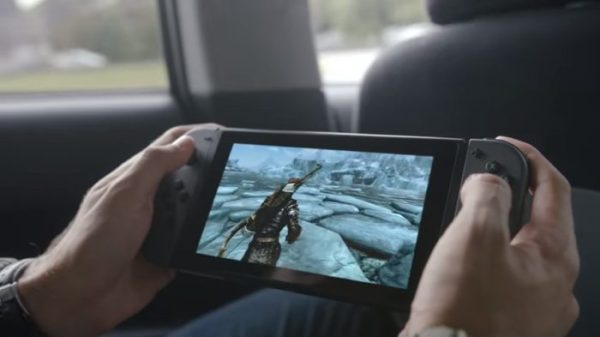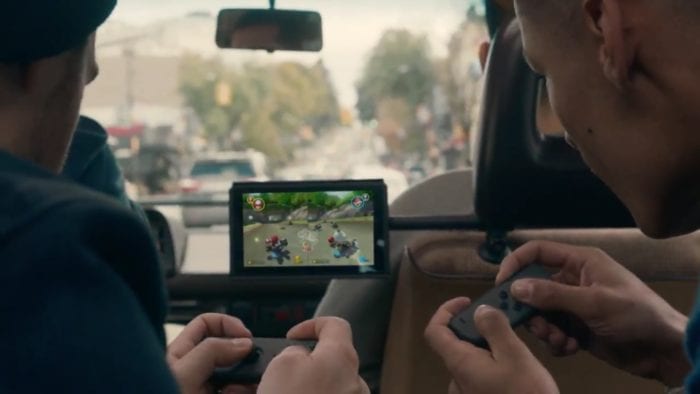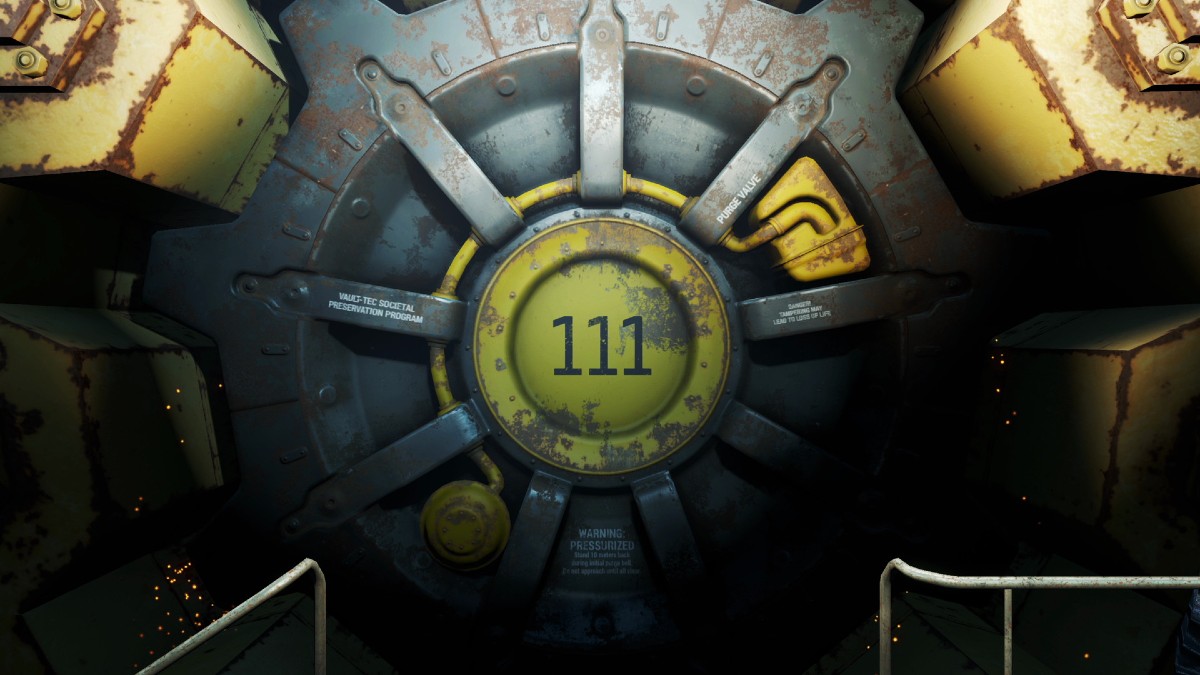Looking back at the fate of Sony’s PS Vita, Former President of SCEA, Jack Tretton described the console as “a great machine” that was “just too late”. Its launch in 2011, if you remember, was at the same time when virtually every man, woman, and child was taking part in the smartphone revolution. Analysts forecasted that the massive install base of mobile phones meant that portable gaming could never be the sole focus of a console’s design moving forward. Since then, only Nintendo’s 3DS has soldiered on with any real purpose, fueled by continued interest in Japan, and even that has become increasingly marginalized by mobile phones. It seemed certain that the future of AAA gaming would be at home on powerful hardware and high-resolution televisions, with online multiplayer games dominating sales charts. The days of button mashing analog game machines on commuter train rides home were over. Or so we thought.
Nintendo’s latest console, the Switch, is shaking up that decree. The console is underpowered compared to its rivals, has a limited online infrastructure, and until very recently, a games library that featured only vague promises of third-party support. Most notably, it is a hybrid device that puts portability at the forefront of its design. It has turned conventional thinking about console design upside down, and yet there’s absolutely no doubt the Switch has been the gaming industry’s hot topic of 2017.
The driving force behind excitement over Switch can’t just be its games. True, Nintendo has done a great job ensuring the Switch’s year one first-party output has been solid, which has helped keep its momentum rolling. Yet where other consoles, such as the PS4 and Xbox One, had the future promise of being the latest supercharged, cutting-edge hardware, able to facilitate visually stunning and grandiose scale in first and third-party games, Switch can boast none of that. There’s something else behind fever pitch excitement over Switch, and I believe has far more to do with the merit of its hybrid hardware and portability than its games. Indeed, perhaps for the first time in history, the function and design of the console is proving as important, or even more important, than the software it runs.

Importantly, what Switch’s success ultimately means is that gamers are once again out and about with an analog console in hand, discovering or rediscovering the joy of handheld gaming. And as they do, they are defying what had become an accepted truth about the perceived future of that corner of the market. Incredibly, in the face of being swallowed by the mobile phone industry, Nintendo gambled that portability would prove a trump card and an appealing point of difference, and so far that’s proving correct.
The big question now is whether the success of Switch throws into question the viability of portable gaming once again. Is there yet still room for traditional analog-controlled handheld games developed by conventional AAA studios and sold as premium content to muscle its way back into the mainstream and replace finicky touchscreen, free-to-play strategy and casino games on mobile phones and tablets?
The short answer is, no. Romanticising the console’s performance is a lovely thought, but that isn’t the scale of the Nintendo Switch’s success, and unfortunately, not the future of portable gaming. The draw of the mobile phone device’s all-in-one communication solution could never be superseded by a dedicated gaming machine, and the magnitude of that install base is too tempting for game developers to ignore. Mobile gaming won’t ever disappear. Even hugely optimistic predictions of Switch’s lifetime sales are but a small blip on the radar of the mobile phone behemoth.
Switch’s sales aren’t being bolstered by casual gamers putting down their mobile phones to play Mario Kart on their commute. The console’s success can be attributed to Nintendo following Iwata’s Blue Ocean Strategy. As they did with the Wii, the company is ignoring a sector of the market they can’t win and creating a new one that they can. Switch appeals to the exact same slice of the pie occupied by PS4, Xbox One, PC owners, and Nintendo fans. Whether it can penetrate the casual non-gamer market in the same fashion as the Wii will ultimately determine its ceiling.
Importantly, the Switch is a device that gamers want, not just Nintendo faithful. Yes, it’s likely attracting audiences old and new, but it’s also an attractive, affordable, and unique second console… if you can get your hands on one.
So its success doesn’t kill the handheld gaming debate, but there’s still plenty of reason to be jubilant about Switch’s impact on the industry. Indeed, Switch’s hybrid functionality iterates on a sector of the market that was presumed to be dying, and the console is breathing new life into it. Unlike Wii’s motion controls, there’s no reason to believe that portability will be a fad. The switch might not ever be able to reintroduce analog handheld gaming in the face of mobile phones enormous install base, but it is reminding consumers of the joy and convenience of portable gaming. It’s also demonstrating to developers the potential of hardware that can keep players locked into content indoors and on the go. Luring consumers on accessibility and tempting developers to take advantage of that will be a key factor that determines the length of Switch’s legs. If those factors click, there’s every bit of a possibility that we’ll see other console manufacturers tempted to consider hybrid gaming, and certainly Nintendo continuing that principle.
The early signs are positive, and Nintendo’s gamble on a hybrid console is looking as though it will go down as a cunningly perceptive move. But importantly for handheld gaming enthusiasts, Nintendo – inadvertently or not – is doing something wonderful. The switch is making changes to our perceptions about portable gaming that may very well rearrange the scale of its importance in the future. The dream of AAA handheld gaming didn’t die with the PS Vita after all, and Switch might just pave the way for a future that will see dedicated gaming devices in the hands of commuters and vacationists… among a sea of mobile phones, of course.




